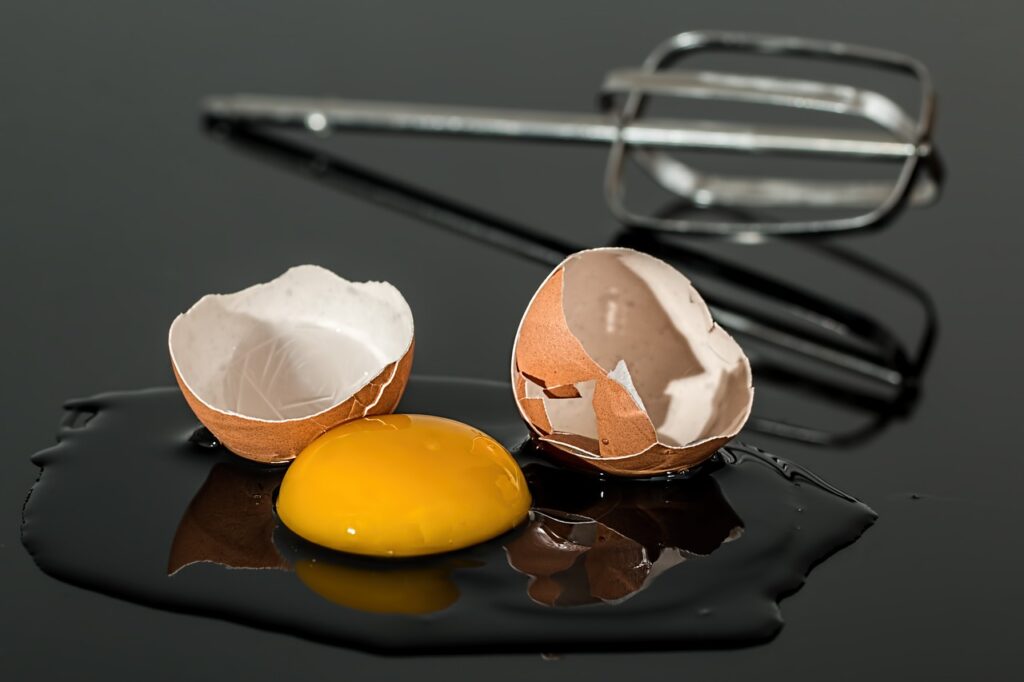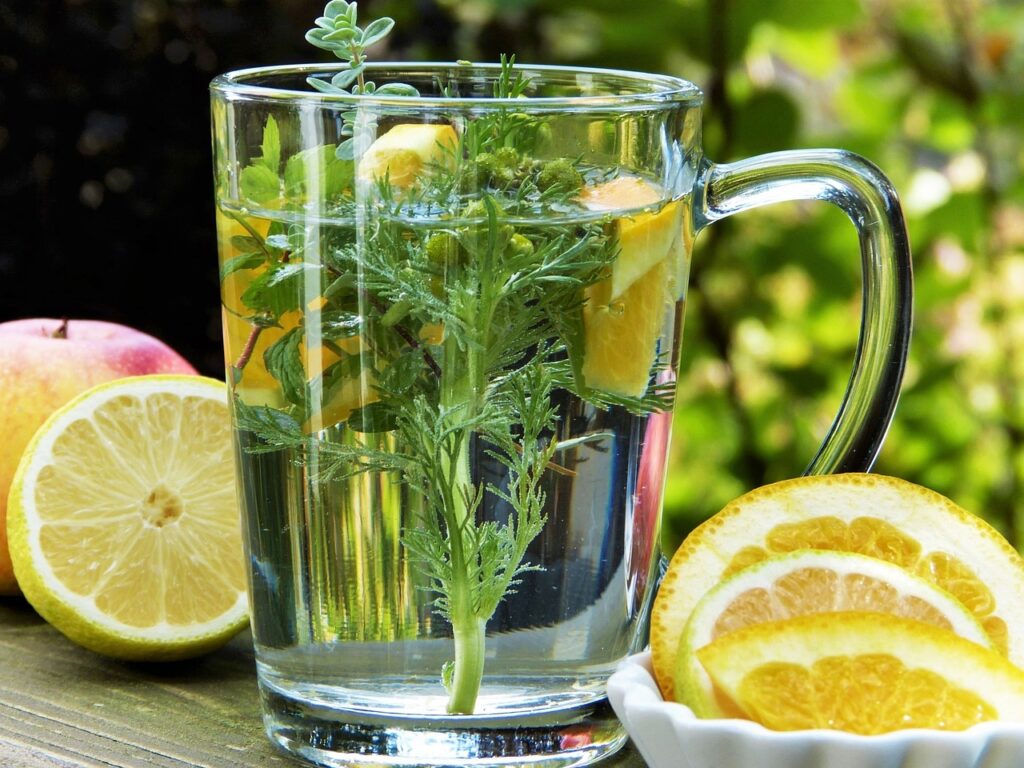Table of Contents
Understanding Cholesterol: Types, Causes and Risks
Cholesterol is a waxy substance found in your blood. Your body needs cholesterol to build healthy cells, but too much of it can increase the risk of heart disease.
There are two types of cholesterol:
- Low-density lipoprotein (LDL): commonly known as “bad” cholesterol because it can accumulate in the walls of arteries and lead to blockages that cause heart attacks or strokes.
- High-density lipoprotein (HDL): often referred to as “good” cholesterol because it helps remove LDL from the bloodstream, reducing the risk of artery damage.
The causes of high cholesterol levels vary. Genetics plays a role; some people may inherit genes that cause them to produce too much LDL or not enough HDL. However, lifestyle factors also have an impact on your cholesterol levels:
- Eating a diet rich in saturated fats and trans fats can raise your LDL levels. Saturated fat is primarily found in animal products like butter, cheese and red meat while trans fat is frequently present in processed foods such as packaged snacks or baked goods made with partially hydrogenated vegetable oil.
- Lack of exercise can make it harder for you to maintain healthy levels of both good and bad cholesterols since physical activity helps increase HDL production.
- Cigarette smoking damages blood vessels throughout your body including those responsible for carrying lipids. Additionally, smoking reduces HDL’s protective effects which accelerates plaque buildup affectively increasing one’s chances for cardiovascular diseases like stroke or heart attack.<\P
Managing your cholesterol levels is essential for maintaining good cardiovascular health. Monitoring your food intake, exercising regularly, quitting smoking and reducing stress can all help in lowering bad chloesterol while raising the good one. In some cases, medication may be required to balance your lipid profile.
Dietary Changes to Reduce Cholesterol Levels
If you’re looking for a way to naturally reduce your cholesterol levels, one of the most effective ways is through dietary changes. By including certain foods in your diet and avoiding others, you can significantly decrease your LDL or “bad” cholesterol while increasing your HDL or “good” cholesterol.
One of the most important things to focus on is reducing saturated fats in your diet. Foods high in saturated fats include red meat, cheese, butter, and processed snacks like chips and crackers. Try swapping these out for lean proteins like chicken or fish, low-fat dairy products like skim milk or Greek yogurt, and healthier snack options such as nuts and seeds.
In addition to cutting back on saturated fats, increasing fiber intake can also help lower cholesterol levels. Soluble fiber found in oats, fruits like apples and oranges,and vegetables such as carrots or broccoli help lower bad cholesterols by binding with them during digestion which means they travel from gut without getting absorbed into body.
Apart from that healthy oils derived from plants sources also have been shown as an effective method of reducing blood cholesterols.These are rich source mono-unsaturated fatty acids (MUFA) which support good health.Best way is use natural oils – Olive oil ,canola oil etc
“Remember,your overall objective should be incorporating heart-healthy habits that will last a lifetime”.The Role of Exercise in Lowering Cholesterol
Regular exercise is an effective and natural way to reduce cholesterol levels. Studies have shown that physical activity can raise the level of high-density lipoprotein (HDL) or “good” cholesterol, which helps to remove low-density lipoprotein (LDL), otherwise known as “bad” cholesterol from the arteries.
Incorporating at least 30 minutes of moderate-intensity aerobic exercises such as brisk walking, cycling, swimming, or jogging into your daily routine can help increase HDL levels and lower LDL levels. Aerobic activity also improves heart health by enhancing blood flow and circulation throughout the body. The American Heart Association recommends engaging in physical activity for a minimum of 150 minutes per week to improve overall cardiovascular health.
In addition to aerobics, strength training exercises offer unique benefits for lowering cholesterol. Resistance training increases muscle mass which has been linked with improved metabolism and reduced obesity – both of which contribute to lower LDL levels.
To get started on an exercise routine that works for you, start slow and gradually build up intensity over time. Consider working with a fitness professional who can help design a program specifically tailored to your individual needs based on factors like age, fitness level etc.
Natural Supplements and Home Remedies for Cholesterol Reduction
While dietary changes and regular exercise are key factors in reducing cholesterol levels, some natural supplements and home remedies can also help lower cholesterol. However, it is important to note that these remedies should never replace prescribed medication or medical advice.
Ginger:
Ginger has anti-inflammatory properties and may reduce the risk of heart disease by lowering blood pressure and preventing the formation of plaque on arteries. You can add ginger to your diet by using it as a spice while cooking or drinking ginger tea.
Oats:
Oats contain soluble fiber which helps lower bad cholesterol levels. A daily intake of around 3 grams per day can significantly decrease LDL (low-density lipoprotein) or bad cholesterol levels. You can have oats as cereal for breakfast with low-fat milk topped with fresh fruits.
Fenugreek Seeds:
Fenugreek seeds are known to help control high blood sugar levels due to their high fiber content. Additionally, they may positively impact lipid metabolism by decreasing total cholesterol, triglycerides and LDL (bad) cholesterol levels in the body. To use fenugreek seeds, soak them overnight in water then consume them early morning on an empty stomach.
Garlic:Garlic contains allicin which has been found to be beneficial in maintaining healthy lipid metabolism by reducing total serum cholesterol, LDL-cholesterol level & other harmful fat deposits in arteries that lead to increased risk of heart diseases such as stroke and myocardial infarction (heart attack). Eating raw garlic cloves daily or consuming them through pickles is a great way to add garlic into your diet plan.
Cinnamon:Cinnamon has been shown in studies to help manage glucose metabolism while also having positive effects on lipid profiles, specifically decreasing total cholesterol and triglycerides. Incorporate cinnamon in your diet by adding a teaspoon of powdered cinnamon to oatmeal or yogurt.
Green Tea:
The catechins present in green tea are known for their antioxidant properties which help prevent heart disease caused due to high blood cholesterol levels. Drinking three cups of green tea per day may lower LDL-cholesterol levels it is caffeine-free and rich in antioxidants that helps keep the body system healthy.
While natural supplements and home remedies can be beneficial, they should never replace prescribed medication without first consulting with a medical professional. However, incorporating these natural remedies into your daily routine along with dietary changes and exercise can lead to overall improvements in cholesterol management.
Lifestyle Modifications to Manage High Cholesterol
High cholesterol levels can be managed effectively by making certain lifestyle modifications. Making these changes may not only help to lower your cholesterol but could also lead to a healthier and happier life overall.
Eat a Healthy Diet: One of the most important steps that you can take to manage high cholesterol is to eat a healthy diet. Limiting saturated fats, trans fats, red meat, full-fat dairy products and processed foods while increasing consumption of fruits, vegetables, whole grains and lean proteins such as fish or chicken can all help in reducing bad (LDL) cholesterol levels.
Quit Smoking: In addition to elevating risk for heart disease and stroke, smoking also negatively affects your good (HDL) cholesterol levels. Quitting smoking promotes better health outcomes related not just to lower cholesterol but other aspects of health like stable blood pressure too.
Maintain a Healthy Weight: If you are overweight or obese it contributes significantly toward raising your LDL (“bad”) chloesterol level which ultimately increases risks associated with heart diseases. Striving towards losing weight through regular physical activity including both cardio workouts plus strength training exercises has been shown effective in reducing cardiovascular risks
Increase Physical Activity:Frequent exercise helps raise HDL “good” Cholesterol level when combined with proper dietary habits.This reduces the amount of LDL (‘bad’ )cholesterol circulating in the bloodstream leading to decreased buildup of plaque along arterial walls.Its recommended on average at least 30 minutes five times per week should be spent on moderate-intensity aerobic exercises like brisk walking,jogging,cycling or swimming alongside components for muscle strengthening.
Note:The benefits derived from increased physical activity will increase further if its paired up with optimal nutrition rather than solely focusing on any one area alone i.e either calorie regulation or exercising
Reduce Alcohol Intake:Consuming alcohol in moderation is generally considered healthy, but excessive intake may significantly raise cholesterol levels and damage to the liver. So try limit your intake for instance 1-2 drinks/day for women & upto maximum of 3 drinks/day for men.
Manage Stress Levels: Stress can trigger many health complications including increased risk of heart disease related to high LDL “bad” cholesterol together with reduced levels of HDL “good”cholesterol .So its necessary you take effective measures like meditation or deep breathing exercises coupled with relaxation practices such as yoga; give yourself enough time on weekends to participate in hobbies and enjoy leisure activities that help reduce stress overall.
When Medications are Required: Treatment Options for High Cholesterol
While lifestyle changes can significantly lower cholesterol levels, for some people, medications are necessary to effectively manage high cholesterol. Your doctor may recommend prescription drugs if your LDL (bad) cholesterol is extremely high or if you have other risk factors for heart disease.
The following are commonly prescribed medications:
– Statins: Statin drugs help reduce the production of cholesterol in the liver by blocking an enzyme called HMG-CoA reductase. This leads to a decrease in LDL and overall cholesterol levels in the blood.– PCSK9 inhibitors: This relatively new medication works with receptors in the liver to remove excess bad cholesterol from the bloodstream. PCSK9 inhibitors are often used alongside statins when they don’t provide sufficient results alone.
– Bile acid sequestrants: These drugs work by binding bile acids produced by the liver that contain harmful LDL-cholesterol before excretion, leading to decreased amounts circulating back into your bloodstream.
– Cholesterol absorption inhibitors: These prevent food-derived dietary fats from being absorbed into your bloodstream which reduces overall lipid intake and lowers bad cholesterols as well.
Your physician will evaluate your health history and explain available treatments while keeping family history of hyperlipidemia or any potential heart risks due to diabetes or other related conditions in mind. Be sure always to follow their dosage recommendations closely along with regular testing intervals at least once every three months initially until optimal treatment control is achieved whereafter usually yearly visits would be adequate.
If you’re experiencing any side effects from these medicines do not discontinue them immediately without consulting with a Physician first since this could lead to significant negative health outcomes.



